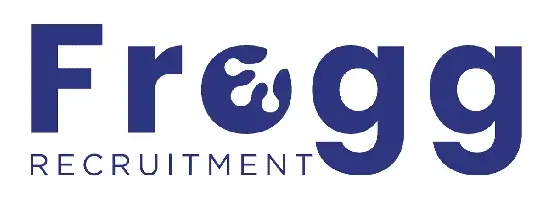Tag: Career Blogs
-

Ace the interview and get a job...
Continue ReadingYour CV/resume is impressive, and the employer is blown away. Now you need to ace the interview and get a job offer. This can be intimidating as you are willingly exposing yourself to possible criticism. Interviewers are more nervous than you are. They are pressurized by frustrated hiring managers/recruiters to quickly hire the best candidate after the resignation of a former employee. This is to not overburden the remaining team. They’ll be blamed if they hire too soon, and the person turns out to be a dud. This is why you need to stand from the rest.
The longer the hiring/recruitment process takes, the more likely the rest of the staff will grow resentful. All the work is dumped upon them without any additional compensation. If a new person isn’t onboarded, they will have to work more hours and will start updating their resumés and contacting recruiters. Looking for more information about our expertise sectors Click here.
Here are our most important tips to ace the interview and get the job offer:
First impressions
The first factor that will get you that job offer is your first impression. First impressions are not always correct. They do count when you want to ace the interview and get the job offer. You want to ensure that you are on time and dressed professionally. When you walk into the interview, supply a warm greeting and smile. A genuine smile makes for a great first impression. You may be nervous, but the key is to look confident and make sure you keep good eye contact. You don’t want to come across as uninterested and disconnected but rather interested and connected.
Knowledge equals confidence
You want to enter the interview with knowledge about the company they did not expect you to have. Research the interviewer as well as the company and its mission, achievements, products, services, and culture. This will impress the interviewer beyond what is on your CV/resume. Anticipate potential challenges and objections. By preparing well, you will feel more confident and ready to impress the interviewer.
Practice your responses.
Master the warmup questions but be prepared for the tough ones. You will likely have to tell the interviewer about yourself, why you should be hired and what your career goals are. The point here is not to have your cv memorized but rather use it as a reference. You want to add something interesting to the story your CV tells. The toughest questions would be “what are your greatest weaknesses” or “where do you see yourself in 5 years?” This is where confidence comes into play and turn those I don’t knows into strengths that relate to the role you applied for. The more you prepare, the more confident you will become.
Prepare examples and metrics.
This goes back to the first point. Essentially what you are trying to do here is demonstrate the value you will be adding to the company. Talk about the impact you made in your earlier role and quantify your experience as much as you can. This is however useful when it is relevant to the position you’re being interviewed for.
Consider the things that others have commended you for in the past, the positive feedback you’ve received, the times you’ve earned money for your business or saved money, or the times you streamlined a process. Your chances of landing the job will increase the more accomplishments you can measure and instances you can use to support your arguments.
Finally, although while most employers won’t expressly inquire about your ability to collaborate with others or your rate of learning, they will be listening for indications of these skills during your interview. You might wish to mention a moment when you collaborated on a project or a situation at work when you acquired new abilities while sharing your examples. Although you don’t need to know everything, displaying an eagerness to learn is an attractive quality.
Ask the right questions.
Always have questions ready for the interview but be careful not to ask any that can be easily answered by doing basic Internet research. Avoid enquiring about the salary and benefits as you are in unchartered waters. More information about the recruitment services we offer click here
Keep in mind that an interview is a two-way conversation, so you should also ask questions to decide whether this organization is a good fit for you. Finally, if it wasn’t already covered, you might inquire about deadlines and subsequent recruiting stages.
Your questions should be open-ended, meaning that they cannot be answered by a simple yes or no. Open-ended questions invite the interviewer to share more information, opinions, or experiences, and create a more engaging and meaningful conversation. They also allow you to learn more about the company, the industry, and the role, and to highlight your own knowledge or perspective. For example, instead of asking “Do you like working here?”, you may ask “What do you enjoy most about working here?” or “How would you describe the culture here?” Open-ended questions also give you an opportunity to ask for feedback, advice, or recommendations. For example, you may ask “What are some of the common mistakes that candidates make in this role?” or “What are some of the resources that you would suggest for someone who wants to learn more about this industry?”
Send a thank you note.
However, an honest and prompt thank you note could be exactly the thing that elevates your candidacy above another similarly qualified candidate who does not bother with a thank you. Ultimately, whether you land the job depends on how well you do in the job interview. Send an email thank you note that is brief and formal whenever it is possible. Additionally, this is a fantastic opportunity to highlight your fit or underscore any important aspects you neglected to bring up during the interview.
Stay positive.
As obvious as it seems to stay positive during a job interview, it can be a tough thing to do. Especially if you describe challenging situations from the past such as being fired previously. Show the employer that you can keep a positive attitude about challenging situations and environments, and they will see the resilient and flexible individual they are looking for.
Conclusion
To ace the interview is a vital step towards get that job offer right there and then. You want to make sure that you take these factors into consideration as they have proved to be helpful. If you want to find more about what we do as one of the top employment agencies, view Our Expertise
Please feel free to read our other blogs and follow us on Facebook, LinkedIn and Instagram for more content.
-

What are the 10 most common interview...
Continue ReadingDo you intend to ace your upcoming job interview? But how and what? What are the 10 most common interview questions? An interview can be difficult to navigate, but with the correct preparation and information, you can confidently answer any question. We offer answers to all your questions, from “Tell me about yourself” to “What are your strengths and weaknesses?”
We are aware of how important it is to present your qualifications in a way that will astonish the interviewer. This will help you differentiate yourself from the competition and raise your chances of getting your dream job, whether you are a new graduate or an experienced professional.
Do not pass up this chance to obtain an advantage in your upcoming interview. Let us begin your journey to interview success. Examining the common interview questions and how a suitable applicant would respond to them is an essential part of preparation for interviews. Are you looking for more information regarding our expertise read up about our Finance & Accounting recruitment.
Listed below are the 10 most common interview questions with answers: Free Cv template
Tell me about yourself.
It can be intimidating to answer this question because one is not always sure how to do so. It does, however, give you as a candidate the chance to introduce yourself and explain why you are a better choice than the competition. Beyond what is on your résumé, the interviewer is interested in learning why you would be a good fit for the position. To start the conversation, you should supply enough personal and professional information in your response to the inquiry. Keep a balance between sharing personal and professional information. Below is an example.
Answer: “Because I run, I have discovered that the discipline and concentration needed to finish a race have aided my development of exceptional time-management abilities in my professional life. In my earlier position, for instance, I was able to successfully juggle several projects and deadlines, assuring consistent on-time delivery. Additionally, I have discovered that my love of rock climbing has contributed to the growth of my cooperation and communication abilities, both of which have been beneficial in my professional life.”
What interest you about this role?
A popular strategy you as a candidate can use is researching information about the company and the role you applied for. Focus on a specific area within the company that legitimately interests you such as the company’s reputation or history. This shows that you have a high interest in the role you are being interviewed for.
Answer: “My prior success and experience will enable me to meet my modest goals in a number of areas, including XXX. I am also eager to find out more information about XXX. The company’s purpose is in line with my personal and professional ideals, and I think I’d fit in quite well with the company’s culture. I loved what I read in the recent article by the CEO about the initiatives the company is undertaking to ensure ongoing enhancement to culture and employee engagement.”
What are your biggest strengths?
Mention your greatest strengths that apply to the role to ensure that you are set apart from other candidates. Be honest and genuine about it as you do not want to produce an answer that the employer wants to hear.
Answer: “Team management is my strongest suit. I hugely appreciate working in teams and using everyone’s special talents and viewpoints on a project, while still having fun and managing a work-life balance. Winning a team appreciation award earlier this year was one of my happiest experiences, and I’ll be honest: I genuinely like doing my part to encourage everyone to put up their best effort.”
What are your greatest weaknesses?
This is one of the most common interview questions. Mention weaknesses in a positive light. Why make your weaknesses seem like flaws, answer this question with confidence. This is another instance to show the interviewer why you as a candidate is the best fit for the position.
Answer: “I work extremely hard, but occasionally this can lead to perfectionism. Because I want things to seem perfect, I have noticed that I often check spreadsheets more than is needed or take too long to prepare emails. To make sure I am managing my schedule while still producing high-quality work, I have consistently focused on estimating how much time to spend on each assignment. I have improved my time management.”
Where do you see yourself in five years?
You may not know where exactly you want to be in five years. Avoid saying “I don’t know.” Show that this opportunity aligns with your professional plans and/or goals, skills and how this aligns with those intentions.
Answer: “In five years, I see myself continuing to work hard and progressing in my current role. I hope to have acquired the necessary skills and experience to successfully lead a team where I want to be seen as a valuable member. I would also like to have developed a good working relationship with all team members. Regarding my career, I would like to have progressed into a more senior role within the company. I would also like to have increased my responsibilities and be given more opportunities to use my creativity.”
What is your ideal work environment?
Do research beforehand to see what answer is most beneficial to you as a candidate. You may never has worked in the environment of the role you applied therefore you may not know what to expect.
Answer: “I enjoy being part of a team therefore I believe this would be an ideal work environment for me. Being part of a team when team members support each other or share ideas is where I thrive. When I need to focus on a task, I do work well alone. An environment where I can grow my skills and be surrounded by like-minded people is ideal to me. “
What is a major challenge you have faced?
This question represents you with an opportunity to talk about your work history. The answer supplied here can make you appear impressive. Think of an applicable challenge and how that challenge was overcome before the interview to highlight skills.
Answer: “In an earlier role, a manager recognized my work ethics and increased my work responsibilities. The increased responsibilities proved to be too much, and I began falling behind and missing deadlines. To increase my productivity overall, we hired another person. I no longer missed deadlines.”
What are your salary expectations?
This question seems complicated to answer as you do not want to make it seem like the sole reason you want this role is for the salary. Do some research about the market and how much the industry pays. Decide a reasonable salary based on your experience and skills.
Answer: “I am flexible and open to discussing salary for this position. My skills in this industry add value to my candidacy. From my research, similar positions pay XXX to XXX. Considering my experience, skills, and value that I can bring to this company; I anticipate the salary be on the higher end.
Can you explain the gap in your CV/Resume?
Employment gaps refer to periods in a professional career when you did not have employment. Gaps in your CV/resume may occur due to a number of reasons. Whether it was to obtain another qualification, retrenchment or even relocation. Regardless of the reason, an interviewer may ask you about it. When this happens, it is important to be honest. Don’t have any regrets read this article to gain more experience in how we operate as a Finance & Accounting recruitment agency.
Answer: “The gap in my CV/resume is indicative of me having travelled, pursuing another degree and well as volunteering. I took this time to focus on self – improvement and I am now to return to the work field. “
What are your career goals?
Employers want to know what your intentions are. Be transparent and honest but do not try to oversell yourself as the perfect candidate. State whether you intend to stay with company or whether you have plans to progress in a different environment.
Answer: “In my current career, I would like to improve my skills and as I progress and take on new roles, I hope to acquire additional skills that will be beneficial to not only the company but myself as well.”
In conclusion, revise these 10 most common interview questions and be prepared for your upcoming interview. If you want to find out more about what view do as one of the top personnel agencies, view Our Expertise. For more blogs like this, read this article Impressive questions to ask during an interview. Follow us on Facebook, LinkedIn and Instagram to be notified whenever we post a new blog.
-

How to write a CV/Resume
Continue ReadingHow to write a professional CV/Resume
You will find insightful information, tips, and guidance on how to write a CV/Resume in the article below. In today’s competitive job market, it’s essential to present a tactful and well-outlined resume. Are you looking for a FREE CV TEMPLATE?
Job Seekers should know how to apply to jobs they qualify for in the sense of requirements and job duties. Job seekers should read the job advertisement carefully and only apply if they are a match.
Know what a good CV entails and ensure your CV/resume is up to par. With the correct knowledge as to what a CV consists of, nothing can stop you from making one that stands out from the crowd. Click on this link to create your own CV
What to write in your CV (Curriculum Vitae) also known as a Resume.
Your CV, or resume outlines your qualifications to recruiters and prospective employers. This document includes details information about your persona, and professional background, education, accomplishments, and skills selling yourself as the most suitable candidate. It contains details about your persona, professional history, educational background, accomplishments, and skills. Click here to view this article on LINKEDIN
The steps below will serve as a guideline regarding how to write a CV/resume:
Personal information
Personal information includes your name, surname, date of birth, in addition to languages that you speak and your contact information such as your mobile number and email address so that employers who you are and how to reach you. Below your personal information, include a brief summary outlining your career and introducing yourself to the recruiter or employer. This is ultimately a very condensed version of what your cover letter would say.
Education
Ensure that you list your educational history, both secondary and tertiary on your CV. Education listed on your CV is always listed in reverse chronological order with your most recent educational qualifications first. Should your current qualification be a completed degree it will be listed first and secondary education would be the last high school you attended and graduated from. Should you be in the process of pursuing another qualification of sorts, that will be listed above your completed qualifications.
Relevant skills
Under the skills section of your CV, list any potential skills that apply to the potential job. This can be any skills that you have acquired acquired outside of your current or previous employment. Examples are software proficiencies like Microsoft Word, Excel, and PowerPoint etc. These are considered as part of the prerequisites or otherwise stated as minimum requirements. Try to include skills that relate to the job description to make yourself a more desirable candidate.
Attributes
A personality trait known as an attribute can enhance your ability to perform within a team or an as individual in a working environment. It is seen as a quality or feature regarded one’s character. It works to describe you as an individual who is passionate in sales and marketing, dedicated or loyal. Its works describe your strengths. It can also describe functional words like being strong in management, people skills, analytical, or technical aligned.
Employment history
It is important to detail your current employment and previous employment history so your prospective employer can see your career path and this is what determines whether you are fit for the business of your prospective employer. This can include; full-time and part-time employment, internships, research projects such as WIL (Will Integrated Learning), lab work, volunteer work, and/or field experience.
Employment history is also consistently listed in reverse chronological order, being your current or last position first, and is almost always listed in bullet point format. Here, you will list the title of the work, name and location of your current/previous place of employment. Below these titles, you will list your job responsibilities performed.
References
References are your former employers who you provide the contact information of so that they may attest to your character, abilities, and work performance. Recruiters use your references to double-check what you’ve written on your CV. Therefore, it is of utmost importance that you are honest as this reflects as part of your personality, character, and values.
If you want to find our more about what we do as one of the top staffing agencies, view Our Expertise. Feel free to follow us on our social pages Facebook, LinkedIn, Instagram.
-

Why understanding company culture matters in your...
Continue ReadingWhy Understanding Company Culture Matters in Your Job Hunt.
Have you ever wondered why some people effortlessly land their dream jobs, while others struggle even to get a foot in the door? It’s not just about having an impressive profile or nailing the interview. There’s another crucial factor at play.
Understanding and aligning yourself with a company’s values, beliefs, and work environment.
Let’s delve into the fascinating world of company culture and discover how cultivating this understanding can pave your path toward lasting success.
Why Understanding Company Culture Matters in Your Job Hunt?
When you’re job hunting, take the time to understand the company culture of each potential employer. After all, the culture of a company can have a big impact on your overall satisfaction with your job.
If you’re not familiar with the term “company culture,” refers to the values, beliefs, and behaviors. Every company has its own unique culture, which is shaped by the founder’s vision, the values of the employees, and even the physical environment of the office.
And while there’s no single “right” company culture, there are definitely some cultures that are a better fit for certain personality types than others. You know what kind of environment you thrive in, you can use that knowledge to help you find a job that’s a good match for you.
For example, if you’re someone who likes to work independently and takes initiative on projects, you might do well in a company that has an entrepreneurial culture. On the other hand, if you prefer more structure and guidance in your work, you might be happier in a more traditional corporate setting.
Of course, it’s not always easy to tell what a company’s culture is like from the outside. But there are some things you can look for that will give you clues. For starters, check out the website and see if there’s any mention.
What is Company Culture?
When you’re job hunting, it’s not just about finding a position that matches your skills and experience. It’s also about finding a company whose culture is a good fit for your personality and values.
Company culture refers to the shared values, beliefs, and behaviours of the people who work at a company. It’s the “vibe” of an organization, and it can be a make-or-break factor in whether or not you enjoy working there. Some companies have a very relaxed culture, while others are more formal. Some promote a work-life balance, while others expect employees to put in long hours. There is no right or wrong answer when it comes to company culture. It’s just important that you find one that suits you.
To get an idea of what a company’s culture is like, do some research before your interview. Check out their website and social media accounts. Read employee reviews on sites like Facebook or LinkedIn, and see if you can talk to anyone who works there. Once you have a better understanding of the company culture, you can decide if it’s somewhere you would be happy working.
How to Understand and Evaluate Company Culture
When considering a new job, it’s important to evaluate the company culture to make sure it’s a good fit for you. There are a few key things to look for when understanding and evaluating company culture:
Do the values of the company align with your personal values?
What is the overall atmosphere like? Is it relaxed or formal?
Do employees seem happy and engaged with their work?
What kind of development opportunities are available?
Is there a strong sense of community within the company?
By taking the time to understand and evaluate company culture, you can be sure you’re making the right decision for your career.
Tools for Finding Information About a Company’s Culture
First, check out the company’s website and see what kind of language they use to describe their work environment. Do they talk about being collaborative, innovative, fast-paced, or customer-centric? This will give you some clues as to the kind of culture they value.
Next, take a look at any employee reviews that are available online. See what current and former employees have to say about the company culture. Pay attention to both the positive and negative comments to get a well-rounded picture. These reviews can be found on FROGG Recruitment.
Try reaching out to someone who works for the company or who has in the past. Ask them about their experience with the company culture and what they think makes it unique. This can give you some great insight that you wouldn’t be able to get from other sources.
Benefits of Working in a Positive Workplace Environment
When you’re job hunting, it’s important to pay attention to the culture of the companies you’re considering. A positive workplace environment can provide a number of benefits that lead to success in your career.
A positive workplace environment is one where employees feel supported and valued. They feel like they are able to do their best work without fear of retribution. Companies with this type of environment tend to have lower turnover rates. Employees are more likely to stick around when they feel happy in their jobs.
In addition, employees who feel supported by their company are more productive. They take fewer sick days and are less likely to call in late or leave early. When employees feel like their work is appreciated, they’re more likely to go above and beyond.
Companies with positive workplace environments are typically more successful overall. This is because happy employees lead to satisfied customers, which leads to repeat business and increased profits. It’s a cycle that starts with creating a supportive environment for your employees.
Challenges of Working in a Negative Workplace Environment
Working in a negative workplace environment can be challenging for a number of reasons. First, it can be difficult to stay motivated when the people around you are unhappy and unfulfilled.
Second, it can be easy to get caught up in the negative energy and start to see everything in a negative light. It can be tough to maintain your positive attitude and remain productive when the people around you are constantly complaining and bringing everyone down.
If you find yourself in a negative workplace environment, it is important to remember that it is not personal and that you can still be successful if you remain positive and focused on your goals.
Conclusion
Understanding company culture is an integral part of any successful job hunt. While many people focus on the skills and qualifications that they bring to a position. The importance of how those abilities will fit within a company’s existing culture should not be overlooked. Doing your research before applying for a job can help you determine if an organization’s values are in line with your own, while also giving you insight into how well you may fit within its team dynamic. By taking this step, you can increase your chances of finding the perfect workplace for yourself and cultivating long-term success in your career.
If you want to find more about what we do as one of the top recruitment agencies, view Our Expertise. Feel free to follow us on Facebook, LinkedIn and Instagram
-

Difference between contingent and retained recruitment?
Continue ReadingWhat is the difference between contingent and retained recruitment?
Here at FROGG Recruitment, we specialize in Contingent recruitment. Contingent recruitment is more like traditional where the client supplies job specs and we do the recruitment.
How FROGG Recruitment can assist you as a valuable client.
The services we offer include the following but are not limited:
We recruit permanent and contract employees within various industries and sectors.
We work accordingly to your brief, job requirements, and skills, saving even more time.
They handle all the administration and communication between the employer and employee.
They can do all the checks like ITC, qualification, criminal, and employment
We can even arrange for more specialized checks and assessments.
They’re a trusted source of up-to-date market intelligence if it comes to market-related salaries.
As a reputable recruitment agency, we will also do all advertising, shortlisting, and interviewing.
We will only submit relevant applicants who match your job requirements.
You have the final decision on who you employ, it’s all up to you. We can only advise.
The recruitment and appointment process progresses efficiently. We work on a contingent recruitment service which means you pay when the candidate starts.
They offer exceptional after-service, meaning we continue to grow and build client relationships.
Finding a quality candidate who’s a great fit for your BUSINESS can often be a time-consuming task. There are a variety of recruiting agencies available to handle this responsibility for you. Learn what contingency and retained recruiting are. Discover the difference between the two, and review tips to help you decide which is right for your business.
Contingency recruiting involves hiring a recruiting firm to locate candidates to fill lower to mid-level open roles. Companies may hire more than one contingency recruiting firm to help quickly find a great fit for the position. They often do this to obtain several resumes for the role. To give themselves plenty to choose from or to hire several people to fill certain positions.
For instance, if a company’s looking to fill five content writer positions. They’ll hire several contingency recruiting firms to find many potential candidates to fill all the open spots. The company’s human resources team may also conduct their own recruitment efforts to ensure they’re reaching a wide audience.
What is retained recruiting? How is it different from Contingent recruitment?
Retained recruiting refers to retained search agencies that often recruit for executive and senior-level roles. Additionally, many of these recruiters are expected to have advanced knowledge of the industry they’re in to better understand what the company needs in a great employee. Moreover, these recruiting firms often charge a placement fee based on the annual salary their candidate receives when they’re hired. Furthermore, the fee amount varies depending on the expert level of the recruiting firm and recruiter you work with.
To ensure your employees are well-trained and prepared for their new role, some retained recruiting firms also provide coaching, training, and onboarding training sessions. This ensures the employee is more aware of their job duties by their first day and removes this responsibility from your HR team to allow them to focus on big-picture tasks. Retained recruiting firms work on an exclusive basis, so they’re the only recruiting company you’re allowed to work with.
Differences between contingency and retained recruiters
There are various differences between contingency and retained recruiting firms. Common differences include:
Payment methods
Each of these recruiting firms follows different procedures when it comes to charging for their time. Contingency search firms typically recruit for your company for free and don’t receive payment for their work until their candidate is hired. This usually means they’ll work hard to provide you with many candidates at once to increase the chances of you selecting their selections.
Payment for Retained Recruitment – There are usually three sections of payment you’ll make to retained recruiting agencies. The first is the retainer you’ll pay when the search first begins. The next is on a certain milestone date that you agree on with the recruiter beforehand. Your final payment is provided when the candidate is successfully hired at your company. If the new hire leaves before an agreed-upon date between you and the recruiter, they offer a guarantee to replace that candidate with someone who has similar or more advanced skill sets. We do Contingent recruitment services and not retained recruitment, a big difference in paying invoices.
Relationship with the company
When you work with a retained recruiting agency, you’re essentially establishing a long-term relationship with them. Many retained recruiting firms require companies to sign an exclusivity form stating that they’ll only work with their agency to find and hire new candidates. They’ll take their time getting to know your company, industry, and hiring needs better to find the best candidates for you.
If you hire contingency firms, you typically have the option to employ several different ones to increase your influx of qualified candidates. This means the contingency firm usually works briefly with you to establish your needs and preferences for the role before finding several potential candidates. They don’t often have a close relationship with you, so you’re able to easily move on to a different firm once your job search process is over.
Quantity vs. quality
Retained recruiting agencies are more focused on finding a handful of quality employees who are perfect for the role. They spend a significant amount of time evaluating your business’ needs, locating talented candidates, and preparing candidates for their upcoming interview with you. This guarantees you’ll find an impressive candidate who aligns well with your company goals, values, and job responsibilities.
Contingency firms focus more on getting you a large number of candidates who could potentially be great fits for the position. Many of these recruiters review the needs and preferences listed on your job descriptions and find candidates with resumes that contain a few keywords matching that information. This helps them provide you with a significant amount of candidates with relevant skill sets and qualifications, but it doesn’t guarantee that these candidates are great fits for the position and company.
Tips for considering which type of recruiter is right for your business
Follow these tips to help you determine which recruiting agency to hire to help you fill your open positions:
Determine your job search goals
Before you pick a firm, sit down with your team to determine your company’s recruitment goals. If your organization is smaller and doesn’t yet need to hire a significant number of employees, contingency recruiting could be the best temporary option for you. If you have multiple positions to hire on an ongoing basis as your business grows, consider using a retained recruiter. They’ll work to build a relationship with you and will recruit strong talent when needed.
Consider the seniority level of the position
If you’re searching for a candidate with an advanced skill set who will work in an executive or leadership role, retained recruiting is the best option. They’ll conduct extensive research on candidates with impressive leadership skills and plenty of experience. This ensures you hire an impressive candidate who will make logical and effective big-picture decisions for your company. For lower to mid-level positions, consider hiring a contingency firm to help fill them.
Establish your timeline and urgency of the role
Think about how soon you’d like to fill your open positions. If you have urgent tasks that need to be completed soon for your company, a contingency recruiter will help you quickly find someone with the skill set to complete those tasks. Work with a retained recruiter if you have plenty of time to assess candidates and make sure the one you’re hiring is perfect for the role.
Decide how many employees you need to hire
Contingency recruiters are great at finding several candidates to fill your open positions. If you have multiple roles that need you need to fill soon or if you’d like a large selection of qualified candidates to choose from, find a few contingency recruiters with great ratings to assist you in this job search.
Finding the best recruiting firm for your company depends solely on the hiring needs and preferences of your organization. To help you get started, work closely with department managers who have positions they need to fill to determine what they prefer in an ideal candidate.
If you want to find out more about what we do, view Our Expertise. Follow us on our Social pages Facebook, LinkedIn and Instagram and be actively involved in newsletters and recruitment blogs.





